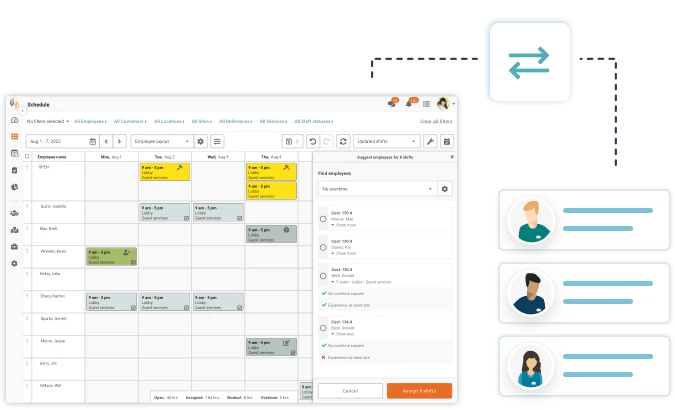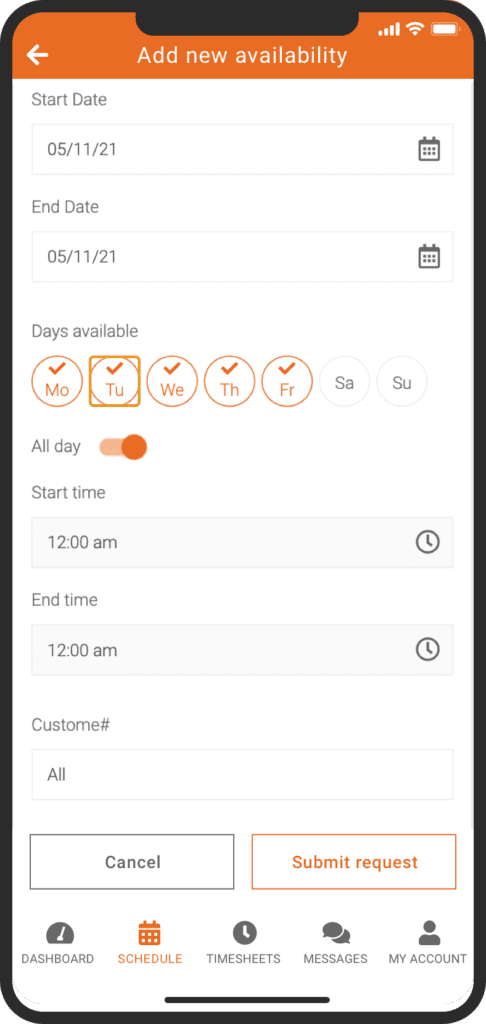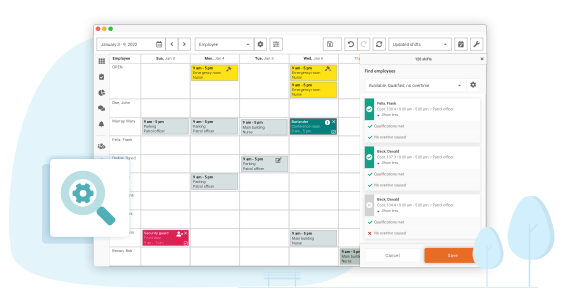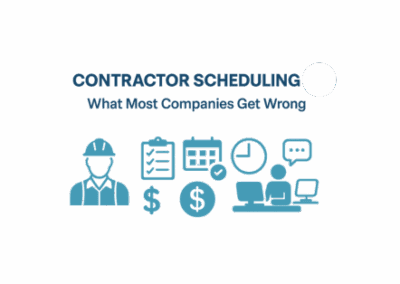Effective team scheduling is essential for any business that relies on staff to deliver services and products. It ensures that the right employees are available when needed, and it optimizes the use of staff resources. In this blog post, we’ll discuss the best practices for scheduling your team and how employee scheduling software can improve processes.
Why is Employee Scheduling so Important?

Employee scheduling is a vital aspect of running a successful business because it directly impacts productivity, employee satisfaction, and operational efficiency. A well-structured schedule ensures that businesses have the right number of employees with the appropriate skill sets available at the right times to meet customer demands, complete tasks, and achieve business goals. In fact, that’s what workforce management is; having the right people in the right place at the right time! Furthermore, effective scheduling allows businesses to manage labor costs by optimizing staffing levels and reducing overtime expenses. It also plays a significant role in employee satisfaction and retention by addressing work-life balance, offering flexibility, and promoting a sense of fairness and transparency in the workplace. Ultimately, a well-executed employee scheduling strategy is essential to maintaining a motivated, productive, and satisfied workforce that contributes to the overall success and growth of the business.
Best Practices for Scheduling your Team
Understand Your Team’s Needs and Availability
Before you can create an efficient schedule, you need to understand your team’s needs and availability. This includes knowing each employee’s preferences, skills, and qualifications. To achieve this, consider the following:

- Regularly update employee profiles with their availability, time-off requests, and work preferences
- Identify the skill sets required for each task or project
- Communicate with your team regularly to stay up-to-date with any changes
By understanding your team’s needs and availability, you can create a more effective scheduling system that maximizes productivity and employee satisfaction.
Develop a Clear Scheduling Process
Having a clear scheduling process in place can help your scheduling team stay organized and efficient. Consider the following steps to develop a systematic approach to scheduling:
- Establish roles and responsibilities within the scheduling team
- Develop a standard operating procedure (SOP) for creating and updating schedules
- Train team members on the scheduling process and software
A well-defined scheduling process can help minimize errors, reduce time spent on scheduling tasks, and improve overall team efficiency.
Utilize Employee Scheduling Software
Employee scheduling software can greatly improve the scheduling process by automating tasks, providing real-time updates, and enabling data-driven decision-making. Businesses that use scheduling software can save up to 80% on admin time spent creating and managing schedules.

Some key benefits of employee scheduling software include:
- Access to real-time data for better decision-making
- Automated scheduling based on employee availability, skills, and preferences
- Integration with other business software, such as payroll and HR systems
By implementing scheduling software, you can simplify the scheduling process, reduce manual work, and improve overall efficiency.
Ensure Adequate Staffing Levels
Balancing staffing levels is crucial for maintaining productivity, controlling labor costs, and preventing employee burnout. To optimize your staffing levels, consider the following:
- Forecast your staffing needs based on historical data, seasonal trends, and upcoming events
- Establish a system for tracking and measuring employee productivity
- Monitor overtime hours and adjust schedules accordingly to prevent burnout
By ensuring that you have the right number of employees scheduled at the right times, you can improve overall team efficiency and reduce labor costs.
Encourage Employee Input & Flexibility

Involving employees in the scheduling process can lead to increased job satisfaction, reduced turnover, and improved morale. By providing opportunities for employees to have input on their schedules, you can create a more engaged and productive workforce. Consider the following:
- Offer a variety of scheduling options, such as flexible hours or remote work
- Encourage employees to swap shifts with one another, with supervisor approval
- Solicit feedback from employees on their scheduling preferences and concerns
By fostering a culture of flexibility and employee input, you can create a more satisfied and productive scheduling team.
Effective team scheduling is crucial for optimizing productivity, managing labor costs, and maintaining employee satisfaction. By understanding your team’s needs, developing a clear scheduling process, utilizing employee scheduling software, ensuring adequate staffing levels, and encouraging employee input and flexibility, you can create a more efficient and effective scheduling system. By following these best practices for scheduling your team, you can improve your overall business performance and achieve greater success. We offer best of breed employee scheduling software to suit your unique business needs.




